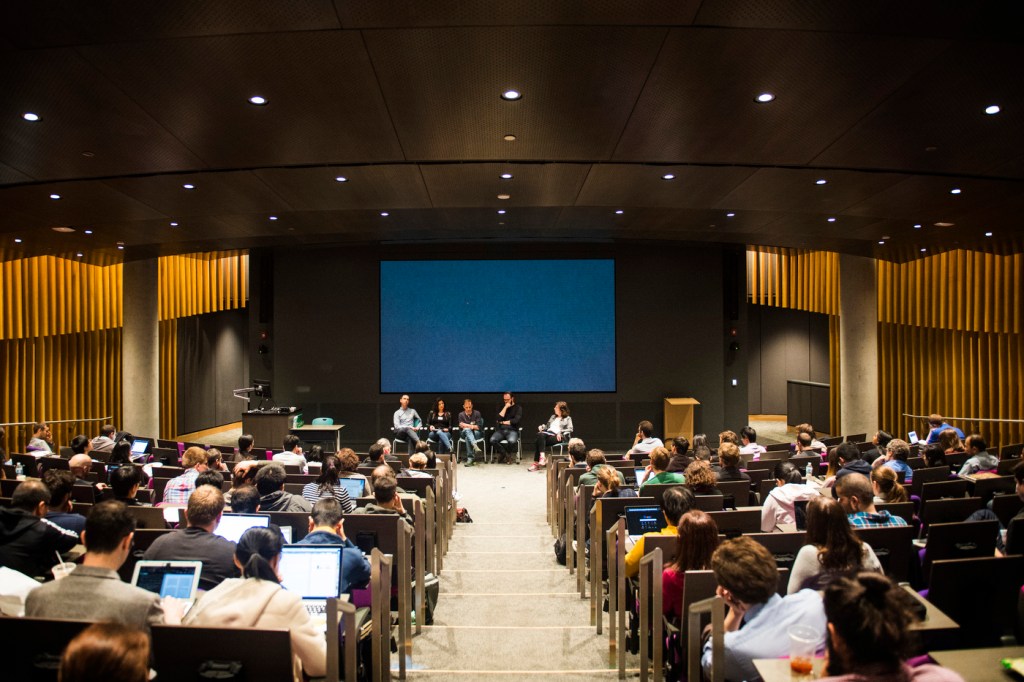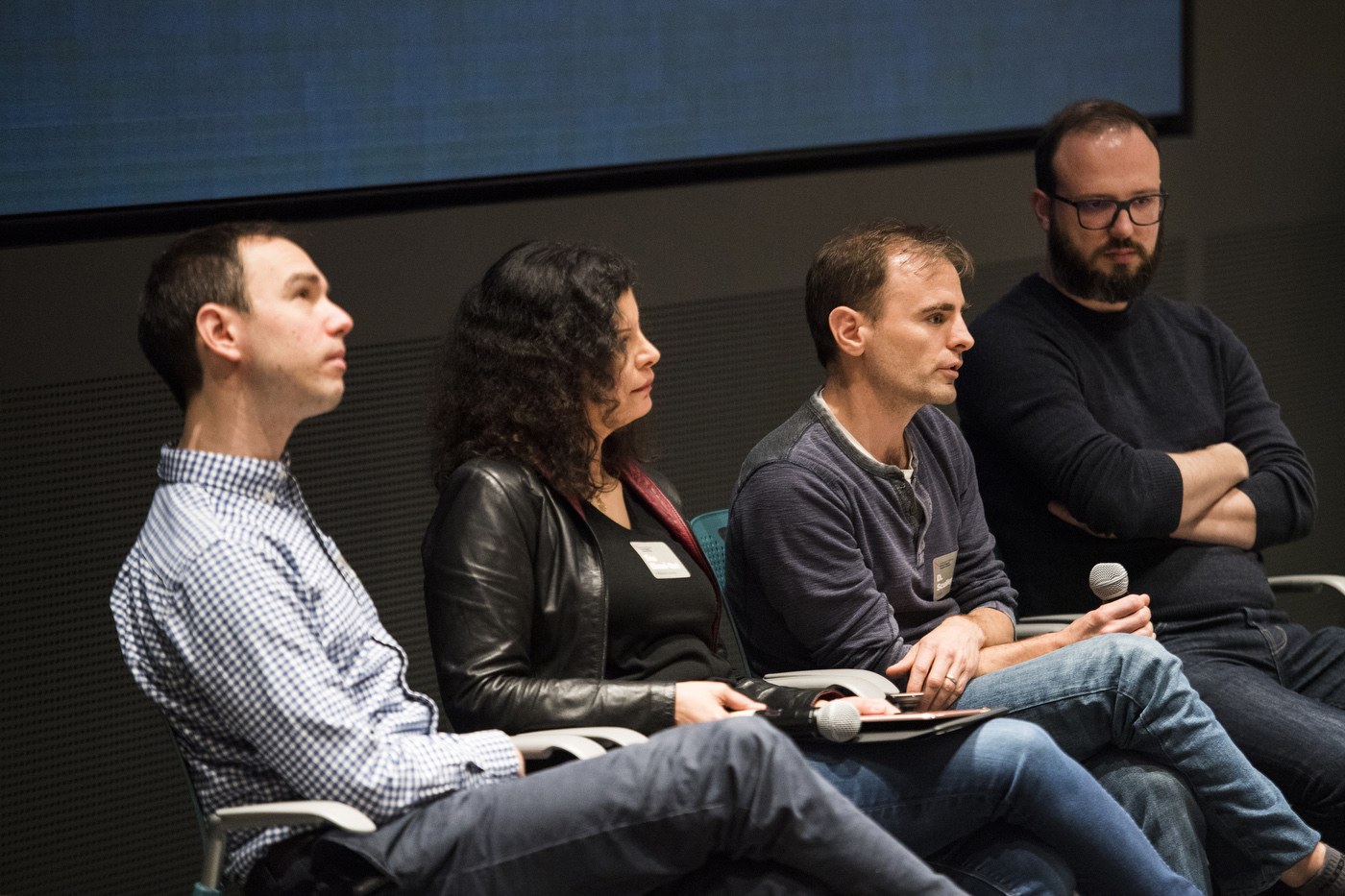Artificial intelligence researchers discuss bias in algorithms at Northeastern University for New England Machine Learning Day

Machine learning, which trains computers to accomplish specific tasks without receiving explicit instructions from humans, has become an increasingly valuable tool for a variety of industries. But the rapid incorporation of machine learning into marketing, finance, healthcare, and other fields has raised a range of ethical concerns that must be addressed.
That was the message embraced by five artificial intelligence experts from academia and industry who convened at Northeastern on Friday to discuss the challenges of integrating machine learning into the workplace in order to improve processes and productivity.
Researchers, they said, need to work to eliminate bias in algorithms, more accurately communicate to the public the limitations of machine learning, and build systems that prioritize the health and wellness of humans.
“Machine learning has come to a point now where it is very central to essentially every branch of science and technology,” said D. Sculley, a software engineer at Google. “It has become an extremely powerful thing in the world and there’s also a very powerful sense of responsibility that needs to come with that.”
Researchers use data to train machine learning algorithms to accomplish specific tasks. If the data the researchers use is biased, the algorithm will make biased decisions and reinforce those biases.
Consider Amazon, which created a tool to review job applications using 10 years worth of data from previous hires. Since the majority of the people who had applied to Amazon were male, the tool prioritized male candidates when vetting applicants for new positions.
“How do we make sure our models don’t fall prey to stereotypes or spurious correlations? Well the easiest way is to make sure that our data has enough diversity and representation,” Sculley said. “We need to do a really good job of actively exploring or actively seeking out ways to fill in those representation gaps.”
This panel discussion, titled “Machine Learning and Industry—the Good, the Bad, and the Ugly,” was part of New England Machine Learning Day, an annual conference sponsored by Microsoft Research. The event, held at Northeastern for the first time, featured talks from researchers around New England and a poster session where graduate students showed off work that applied machine learning to a variety of problems, including predicting outcomes for stroke victims, improving thermal imaging, and forecasting floods.
“There’s a lot of issues that are cropping up in machine learning, now that it’s being widely used across many different sectors,” said Carla Brodley, dean of the Khoury College of Computer Sciences at Northeastern, who was on the steering committee for the event. “In particular, there are these issues around ethics, fairness, and bias that are really interesting.”

Panelists said that researchers need to work to eliminate bias in algorithms, more accurately communicate to the public the limitations of machine learning, and build systems that prioritize the health and wellness of humans. Photo by Adam Glanzman/Northeastern University
The panelists emphasized that researchers, journalists, industry professionals, and public relations specialists need to use accurate language to describe what machine learning algorithms are capable of. Flashy announcements in academic journals, newspapers, and press releases that oversimplify results, they said, can easily skew the public’s perception of machine learning.
“This hype will have societal implications in terms of public policy as well,” said David Sontag, an associate professor at the Massachusetts Institute of Technology. If lawmakers don’t understand how machine learning algorithms work, he said, they could create laws that interfere with the development of artificial intelligence without serving the public good. “We might be put into a position where much more is regulated than perhaps should be, due to lack of understanding of precisely what the innovations are, where the national security concerns might be and where they aren’t.”
Tina Eliassi-Rad, an associate professor of computer science at Northeastern, said that machine learning algorithms that are used to make decisions about the health and well being of humans need to be willing to sacrifice efficiency to serve human needs.
“Is machine learning being used to make human decisions?” she said. “Then that machine learning algorithm should actually learn what a good human being would do.”
For media inquiries, please contact media@northeastern.edu.




